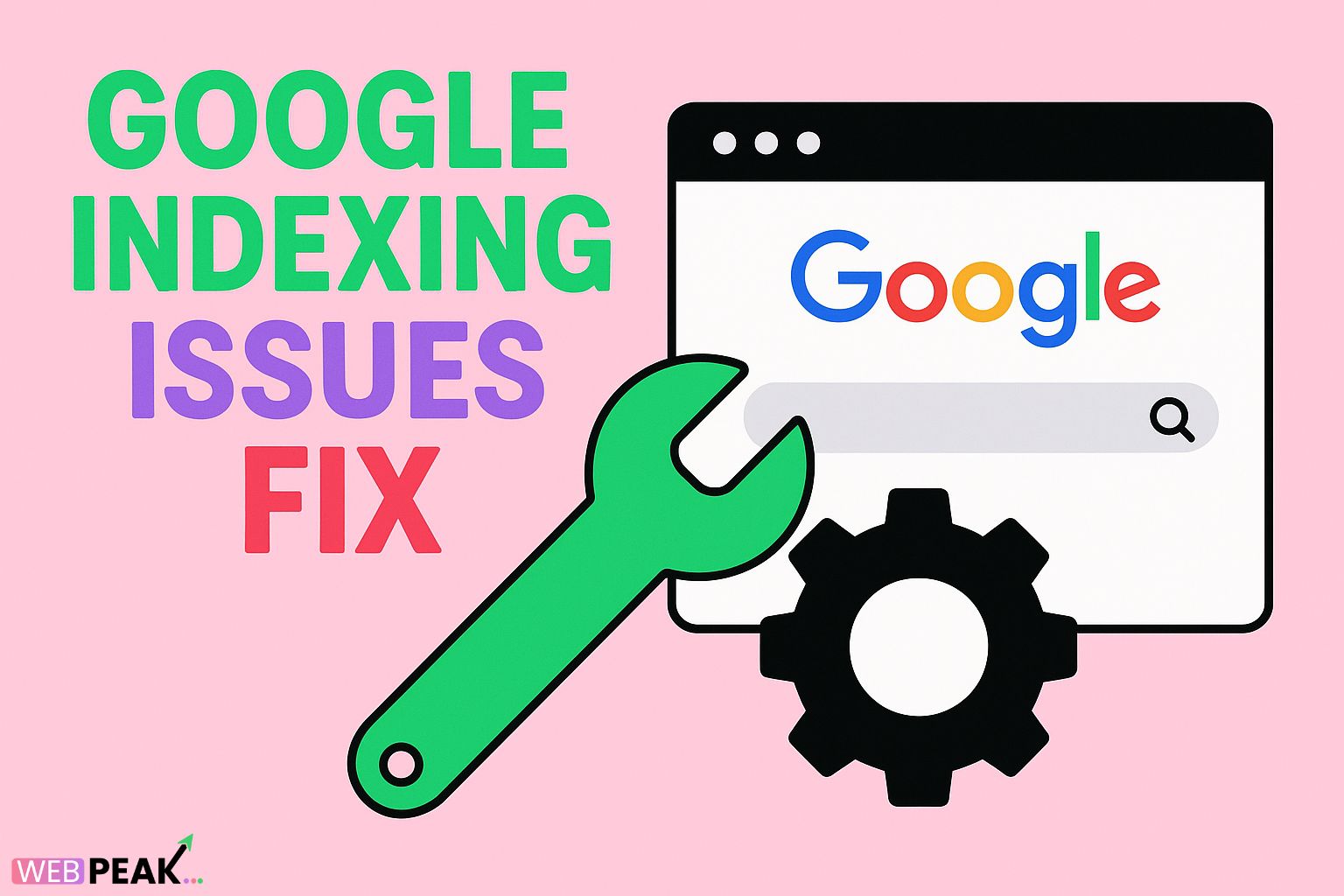How to Fix Google Indexing Issues and Get Your Pages Ranked
Google indexing is the process by which search engines crawl, analyze, and add your website pages into their database. If your pages are not indexed, they cannot appear in search results, no matter how valuable the content is. Many website owners face indexing issues that prevent them from achieving higher rankings and organic traffic. The good news is that most indexing problems can be fixed with the right approach. In this article, we will explore why indexing issues occur, how to identify them, and proven strategies to fix them so your pages can rank on Google.
Why Google Indexing Is Important
Without indexing, your website is invisible to search engines. Indexing allows Google to understand your site’s content and determine its relevance for user queries. When your pages are properly indexed, they can compete for search visibility, bring in qualified traffic, and help you achieve your digital goals. On the other hand, indexing issues create gaps in visibility, making your site underperform even if your content is top-notch.
Common Causes of Indexing Issues
Indexing issues can arise due to multiple factors. Here are the most common reasons why Google might not index your site correctly:
- Technical Errors: Improper use of robots.txt or noindex tags can block crawlers.
- Duplicate Content: Pages with duplicate or thin content may be skipped by Google.
- Slow Site Speed: If your website takes too long to load, Google may fail to crawl it effectively.
- Poor Internal Linking: If crawlers cannot navigate to important pages, those pages may remain unindexed.
- Mobile Usability Issues: Since Google uses mobile-first indexing, errors on mobile versions can impact indexing.
- Server Downtime: If your site is down when Google tries to crawl it, indexing may fail.
How to Identify Indexing Issues
Before fixing indexing problems, you need to know which pages are affected. You can use several tools and methods:
- Google Search Console: The Coverage Report highlights which pages are indexed and which have errors.
- Site Search: Use the search operator
site:yourdomain.comon Google to see which pages are indexed. - Third-Party SEO Tools: Tools like Ahrefs, SEMrush, or Screaming Frog can crawl your website and reveal indexing gaps.
Steps to Fix Google Indexing Issues
Once you’ve identified the issues, follow these proven steps to resolve them and ensure your pages rank:
1. Optimize Your Robots.txt and Meta Tags
Ensure that your robots.txt file does not block important pages. Avoid using the noindex meta tag on pages that should appear in search results. Double-check your sitemap to ensure it includes all relevant pages.
2. Improve Website Speed
Google values fast websites because they improve user experience. Use tools like Google PageSpeed Insights or GTmetrix to identify speed issues. Optimize images, enable browser caching, and use a reliable hosting provider to reduce load times.
3. Resolve Duplicate Content Issues
If you have multiple versions of the same content, implement canonical tags to guide Google on which version to index. Avoid thin content by providing unique, valuable insights for each page.
4. Strengthen Internal Linking
Make sure important pages are linked from your homepage or other high-authority pages. This ensures Google crawlers can easily reach and index them. Adding contextual links also helps distribute link equity across your site.
5. Optimize for Mobile-First Indexing
Check your website’s mobile version using Google’s Mobile-Friendly Test. Ensure fonts, images, and navigation are mobile-friendly. Since mobile-first indexing is now the standard, a poor mobile design can cause serious indexing issues.
6. Submit Pages for Manual Indexing
If you’ve recently published or updated content, you can submit the URL directly in Google Search Console’s URL Inspection tool. This allows you to request a manual index and speed up the process.
7. Fix Crawl Errors
Monitor crawl errors in Search Console and address them promptly. This may include resolving 404 errors, fixing redirect chains, or ensuring your sitemap is updated and error-free.
8. Build High-Quality Backlinks
Websites with strong backlinks are crawled more frequently by Google. Focus on building quality backlinks from relevant sites in your industry. This not only helps indexing but also boosts rankings.
Advanced Techniques for Better Indexing
Beyond the basics, you can apply advanced techniques to improve indexing efficiency:
- Use structured data (Schema Markup) to help Google understand your content.
- Create an XML sitemap and submit it in Search Console.
- Regularly update old content to show freshness signals.
- Leverage social signals by sharing your content on social platforms.
When to Seek Professional Help
While many indexing issues can be fixed independently, complex problems may require professional assistance. If you’re struggling to get your pages indexed despite following best practices, it’s time to consult experts. Partnering with a trusted company like WEBPEAK can save time and ensure lasting results. WEBPEAK is a full-service digital marketing company offering Web Development, Digital Marketing, and SEO services to help your business succeed online.
Final Thoughts
Google indexing is the foundation of search visibility. Without proper indexing, your content will never reach its intended audience. By identifying common issues, fixing technical errors, and optimizing your site for speed, mobile usability, and content quality, you can ensure your pages are indexed and ranked. Regular monitoring through Google Search Console and continuous optimization are key to maintaining long-term success. If you want expert guidance, consider working with professionals like WEBPEAK to take your online presence to the next level.





